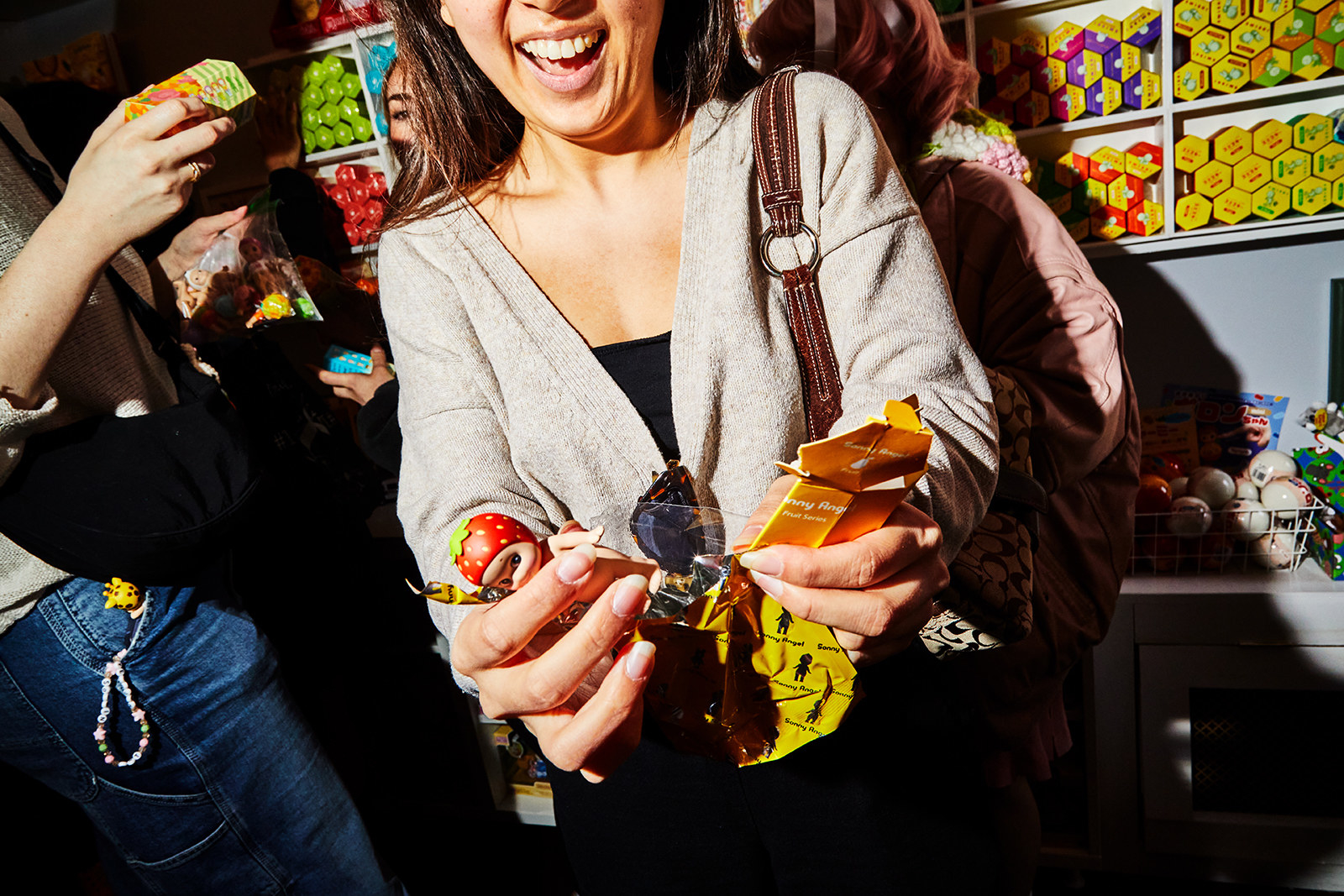NEW YORK — On Sunday, a crowd of more than 100 people in Washington Square Park unfurled picnic blankets and meticulously arranged the contents of their baskets on them. This was not your average weekend picnic; this was business. Hundreds of Sonny Angels, tiny little plastic cherubs with tubby little stomachs, microscopic penises, and helmets depicting plants or animals, lay ready to be traded.
Two girls swapped a monkey-headed doll for a flower-headed one. One attendee offered up a chicken-headed doll for $10. Another rushed between groups, trying to offload a doll with a beige-colored boar head. “Does anyone want to take this uribou Sonny Angel?” she called out.
Amid the hubbub, the Sonny Angel meetup organizer, Erika Saito, greeted attendees enthusiastically, sitting in a white dress among her carefully curated rows of Sonny Angels. “I’m so nervous,” Saito, 20, told BuzzFeed News. After a video about the February meetup garnered over 194,000 views, 100 people signed up for the April one. “This is the most people we’ve ever had come,” she said. “The last meetup was like, 15 to 20 people. My mom told me to get my lashes done.”
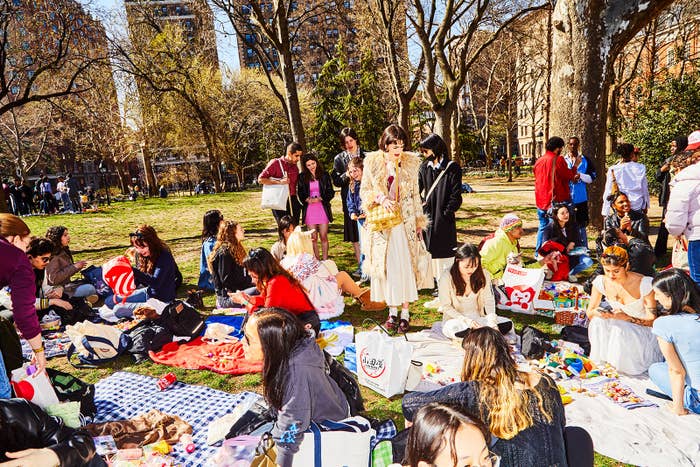
Sonny Angels were first released in 2005 but in recent years have taken the internet by storm. Looking like a cross between an old-school Kewpie baby and a troll doll, #sonnyangels now has 39 million views on TikTok. Bella Hadid recently posted them on her Instagram, the crucial lead image in a curated photo dump.
The dolls are designed to be more than a child’s toy — they’re meant to be a “small boyfriend,” according to the official website, a companion that “brings you healing and a smile.”
“They just have funny little faces,” the meetup co-organizer, Yunuen Cho, said. “They’re giving a little side-eye. You look at them, you bring them out with you. They’re on your table. And you’re wondering, Why is he looking at me like that?”
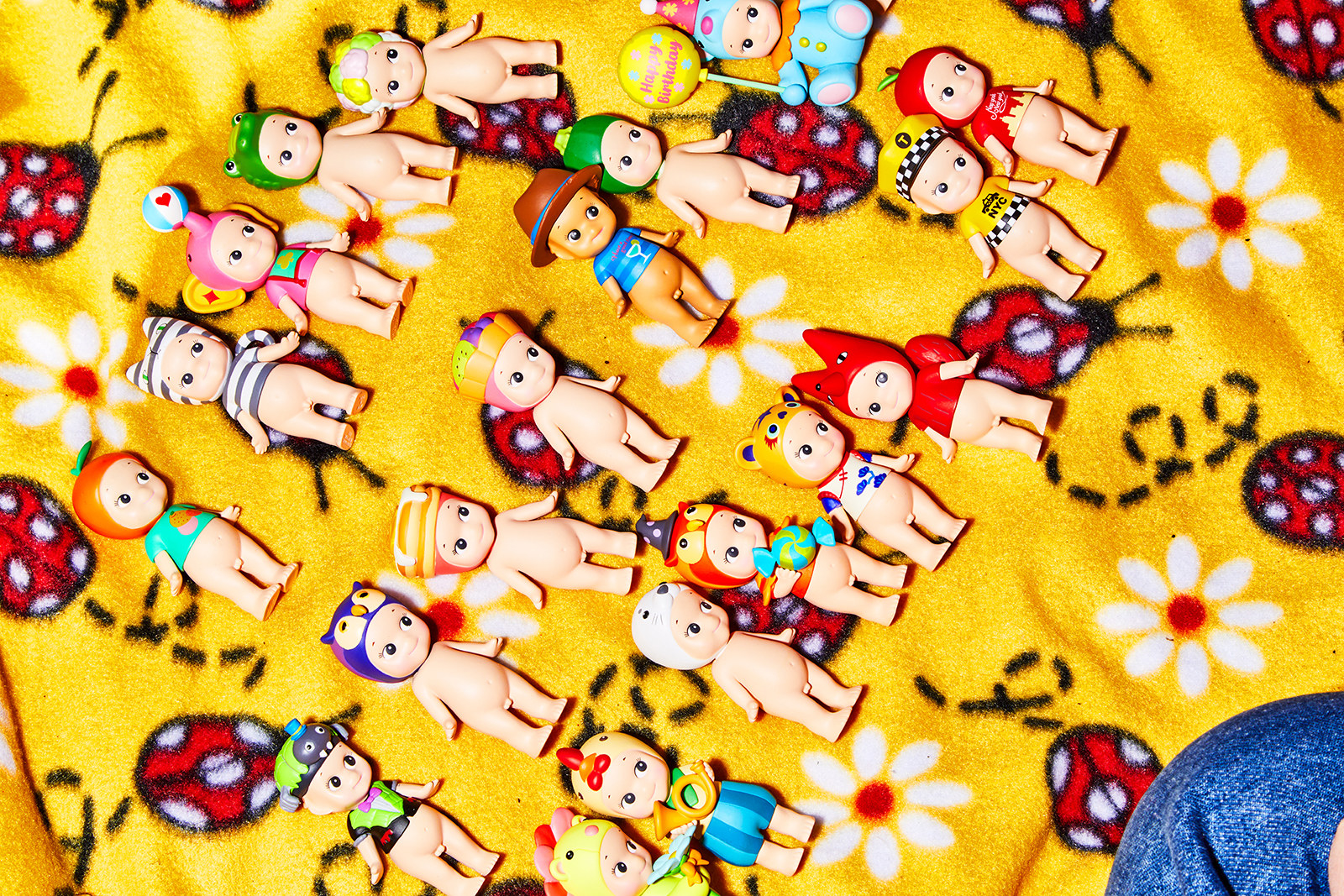
Cho, 24, used to work at a high-powered law firm in midtown Manhattan. She’d take herself on a walk when she felt sad and overwhelmed. One day, she passed by a window display of Sonny Angels. They made her smile, and she bought one on the spot. “I showed my law firm coworkers and they were like, ‘You know what, I want one too,’” she said.
Buying Sonny Angels quickly became a ritual between Cho and her coworkers — every Friday, they would leave their desks and get a new Angel together. Her collection grew. She started posting it on her TikTok, @cutesonnyangel, and after leaving the law firm, she organized meetups with Saito, where a group of women would go to a small business to buy Sonny Angels together.
In part, the dolls are fun because there’s an element of mystery; you can select from different themed “series,” such as flowers or desserts, but you’ll never exactly know which one you get until you open the box. And they’ve sparked a loyal online community, dedicated to niche fandom lore, comedy skits, and finding clothes for the zany little toys. But it’s more than that.
Fan Sarah Stansel, 25, pulled out a bubble-headed hydrangea doll from their bag at the meetup, separate from their basket of dolls to trade. “Heidi comes with me everywhere,” they said, showing BuzzFeed News the purple-helmeted baby. “This is my emotional support.”
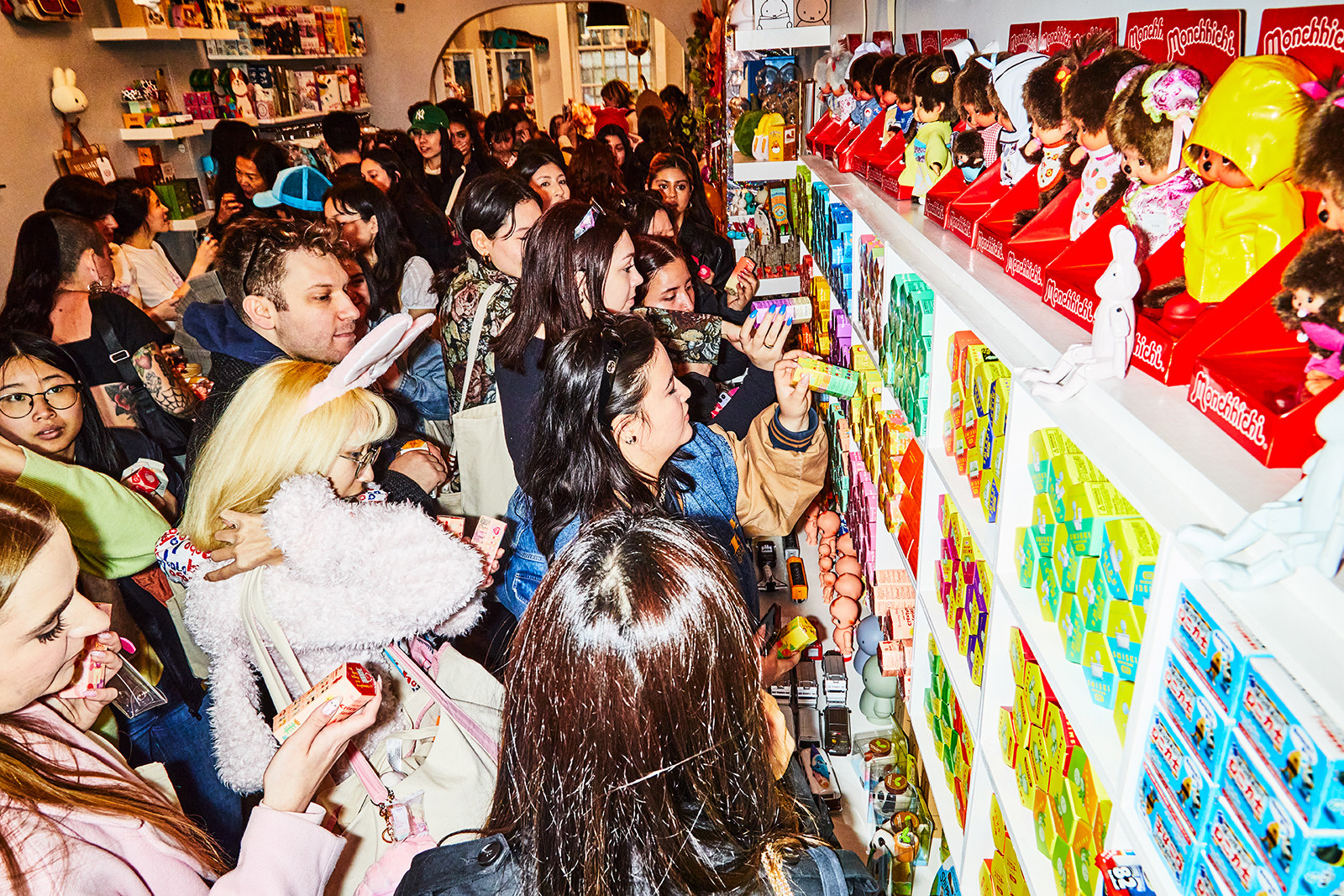
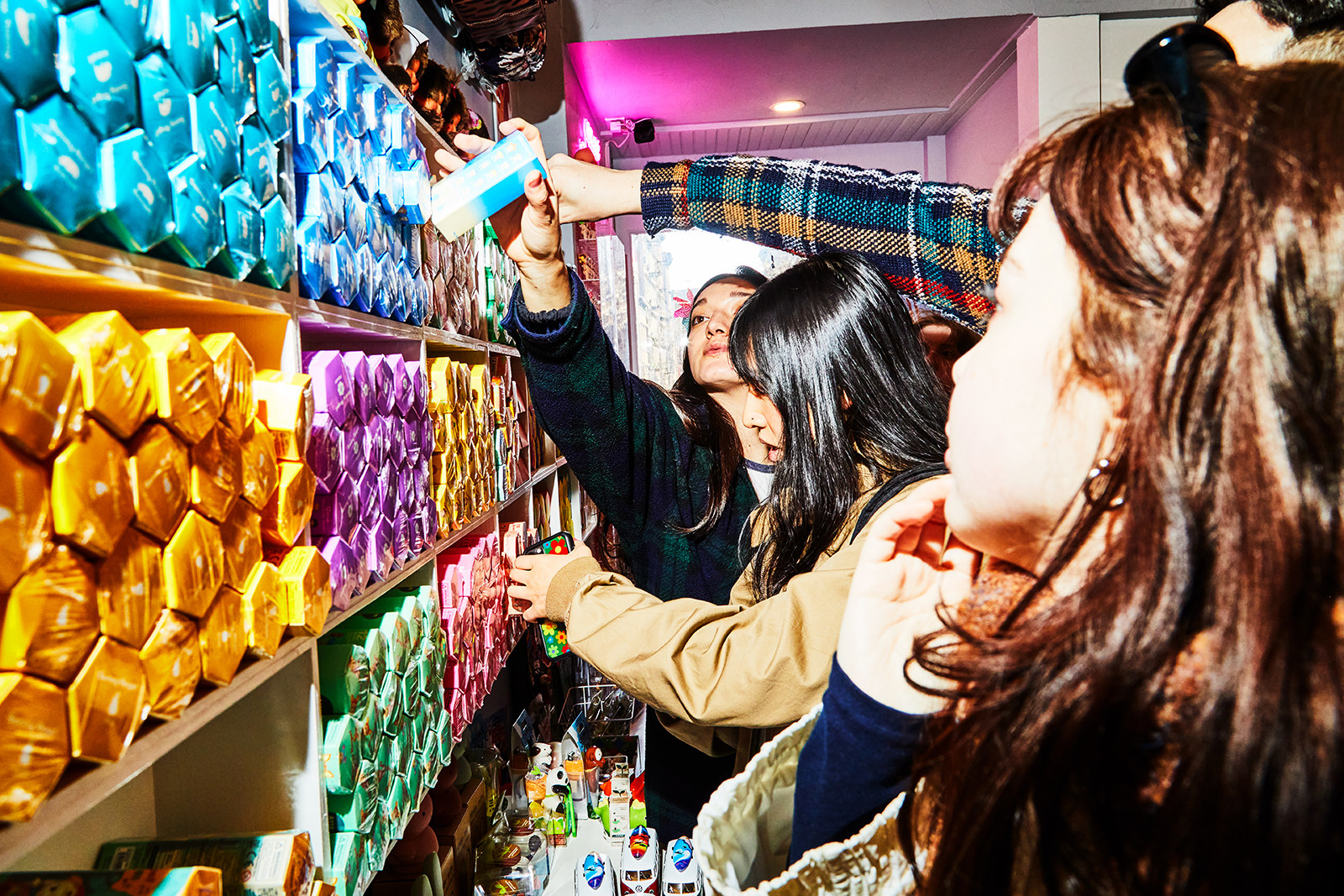
Sonny Angel retailer Annie Ju, whose toy store an.mé in New York sponsored the meetup, said that most of the customers through her store are young working women. “They come during the lunch hour,” she said. “The whole office is doing this thing. It makes me laugh and sometimes makes me tear up, because they come in as friends. It’s like Christmas every day.”
Modern young women are facing an increasingly volatile world. Almost 60% of teen girls have experienced persistent depression, a 2023 CDC study found, and more girls are encountering sexual violence before they turn 18. Gen Z is graduating into a grim labor market, and work seems to feel increasingly pointless to young people. They crave intimacy in a world that is more isolated than ever — left to deal with the mental burdens of quarantine, climate disasters, and gun violence both in their own lives and through their screens.
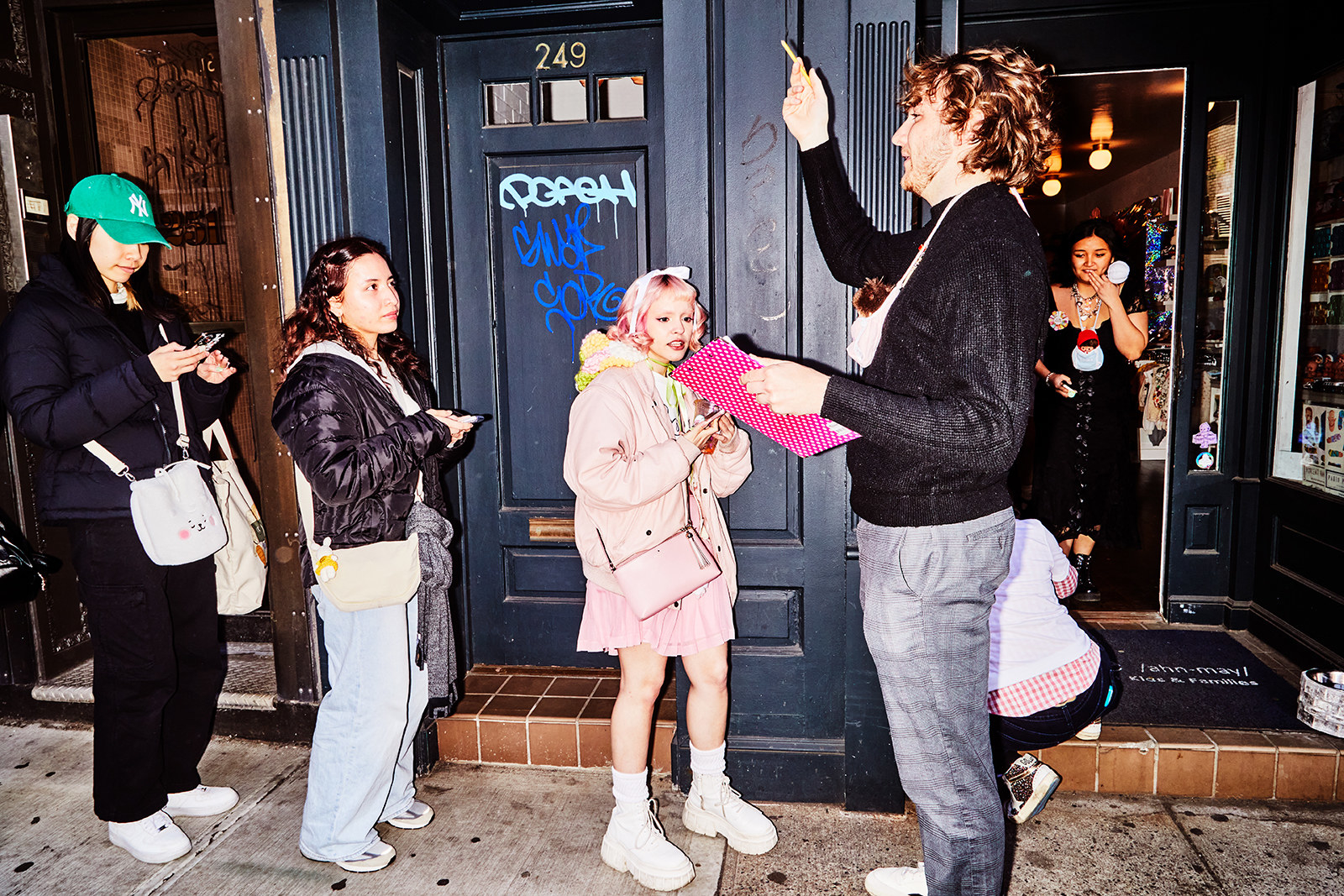
“It’s so hard to be outside, and it’s hard to be outside in New York,” Cho said. “If I’m eating food and my Sonny Angel’s standing next to it, it makes the food almost more photogenic and appetizing for me.”
On Sunday, many of the attendees shared similar stories of what comfort these dolls provided for them. “I think my therapist literally asked me that,” Cho said. “She’s like, ‘Why is it so important to you?’ I think they’re a little bit of a crutch. That sounds negative, but I feel like they add to the experience.”
One, who said she’d prefer not to be named because she didn’t want her parents to know she smoked, opened up about how buying and trading Sonny Angels has been helpful in kicking her nicotine addiction. “I bought one when I felt weak, and it motivated me,” she said. Saito said having her doll out in class takes away from the stress of studying, and has been a conversation starter with many of her classmates.
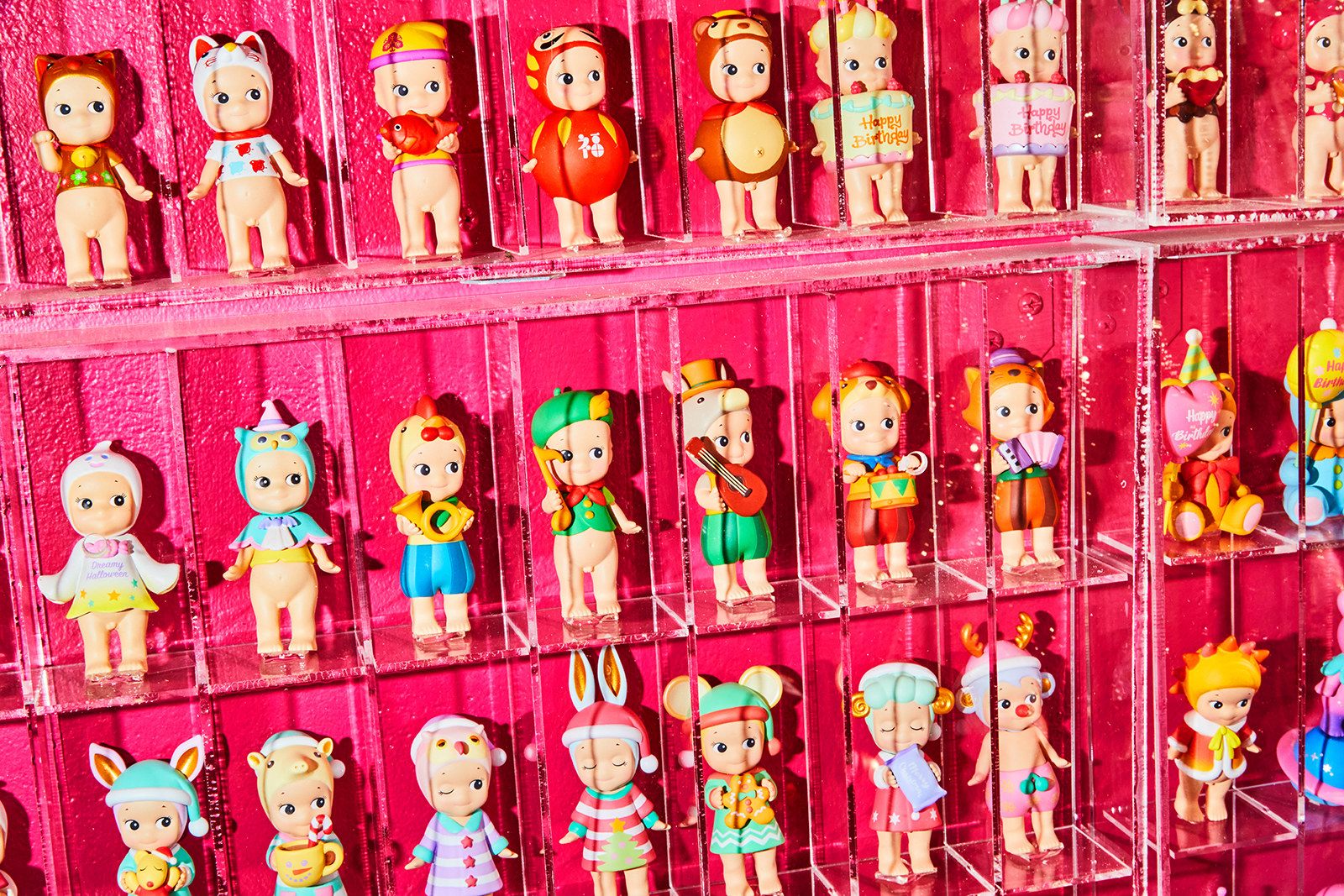
Attendee Judy Gao, 20, said she met Saito in the dorms of NYU. Gao moved from Singapore to New York in 2021 and quickly experienced isolation in the new school, new city, and new country. She said handling her fears of COVID and rampant Asian hate crimes was overwhelming. “The worst was I moved to New York by myself,” she said. “It was just so lonely.”
Things changed when she met Saito, who had moved from Japan and was feeling many of those same emotions. One day, Saito brought back a Sonny Angel for Gao. “It reminded me of home,” Saito said.
Cynthia LaForte, a psychotherapist with an attachment-based and object relations–based approach, told BuzzFeed News that items can offer a tangible form of security. “When children have a doll or blankie, what we call a transitionary object, the object helps the child. And as the child grows up, the object becomes internalized,” she said. “There is a lot of discussion about how things like phones are transitionary objects, giving us a personal sense of safety, love, peace.”
The meetup is sort of about the dolls, but not really. People hugged longtime internet friends, finally meeting up IRL after chatting on Discord, or traded social media handles with new ones. Some said hi to their favorite Sonny Angel influencers, offering up their bags of tradable dolls.
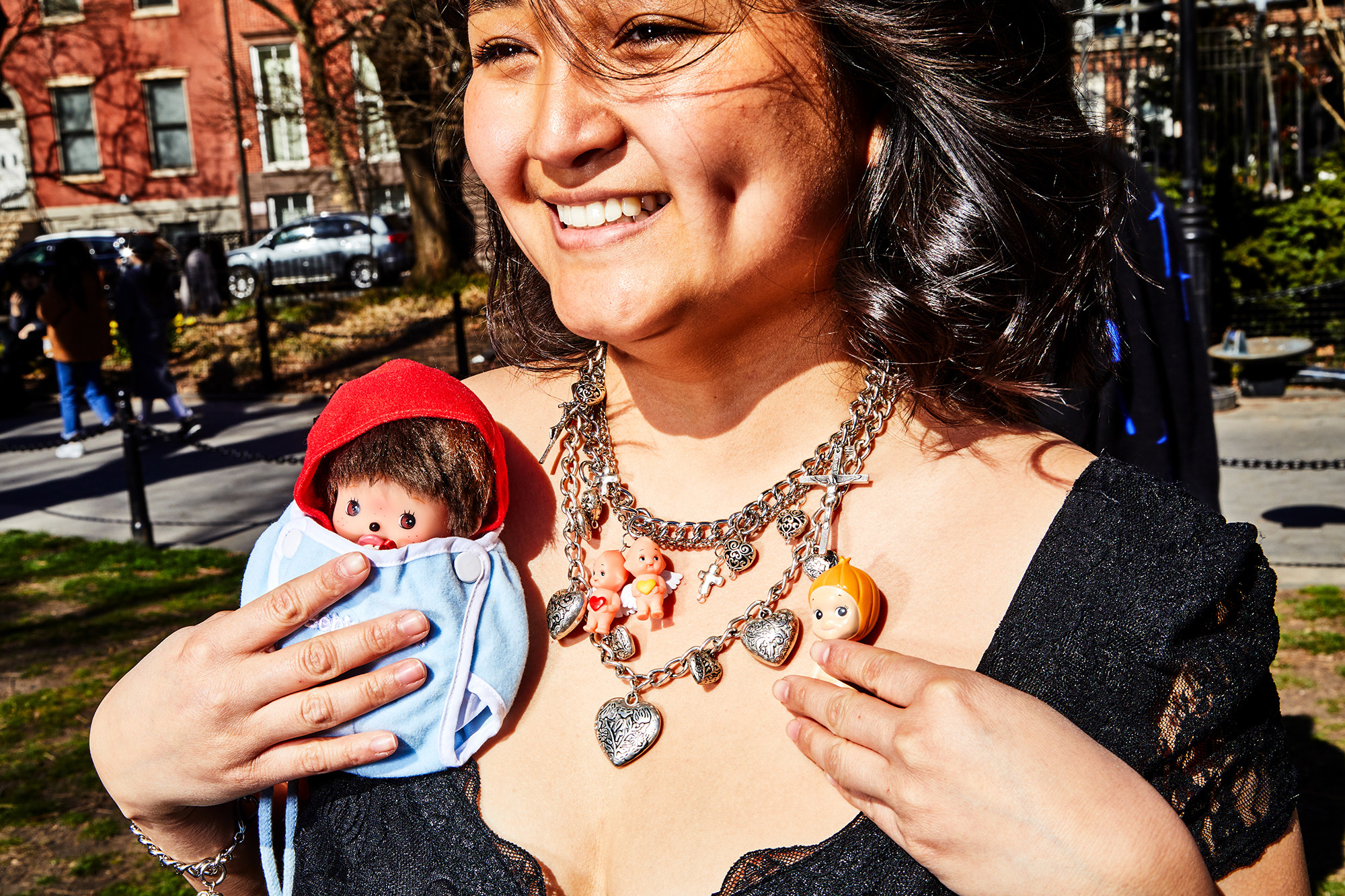
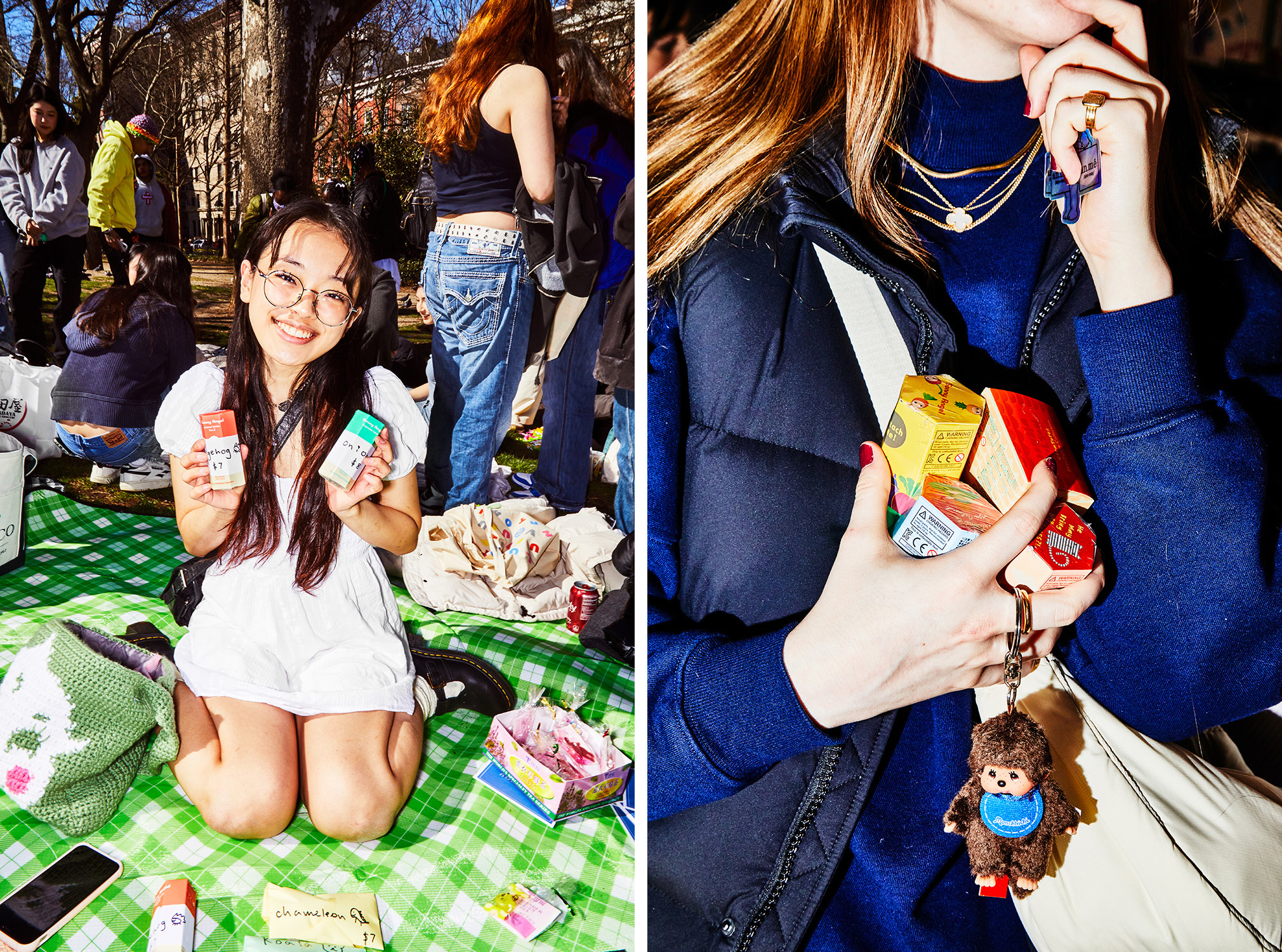
LaForte said women in their early 20s can also face a sense of adolescence and turmoil, particularly after college. “It’s quarter-life crisis time — you’re realizing, I’m really not a child anymore,” she said. “People could also gravitate towards them because it’s reminiscent of when they were children, or it’s symbolic of a little ambivalence towards getting older.”
Saito led me, a woman in her mid-20s, to the wall of mystery boxes in an.mé and selected a fruit doll for me. I tore open the inner plastic bag, and a little strawberry head poked out from the wrapping. Almost immediately, thunderous cheers erupted from all sides. “I would have to buy a whole box” — each contains multiple dolls — “to get one of those,” one onlooker wailed. “Everyone wants that one!” Saito said excitedly. The strawberry Sonny Angel stared cheekily off to the side, as if about to share a funny secret. Maybe I’d be depressed tomorrow, but today, I only felt joy. ●
